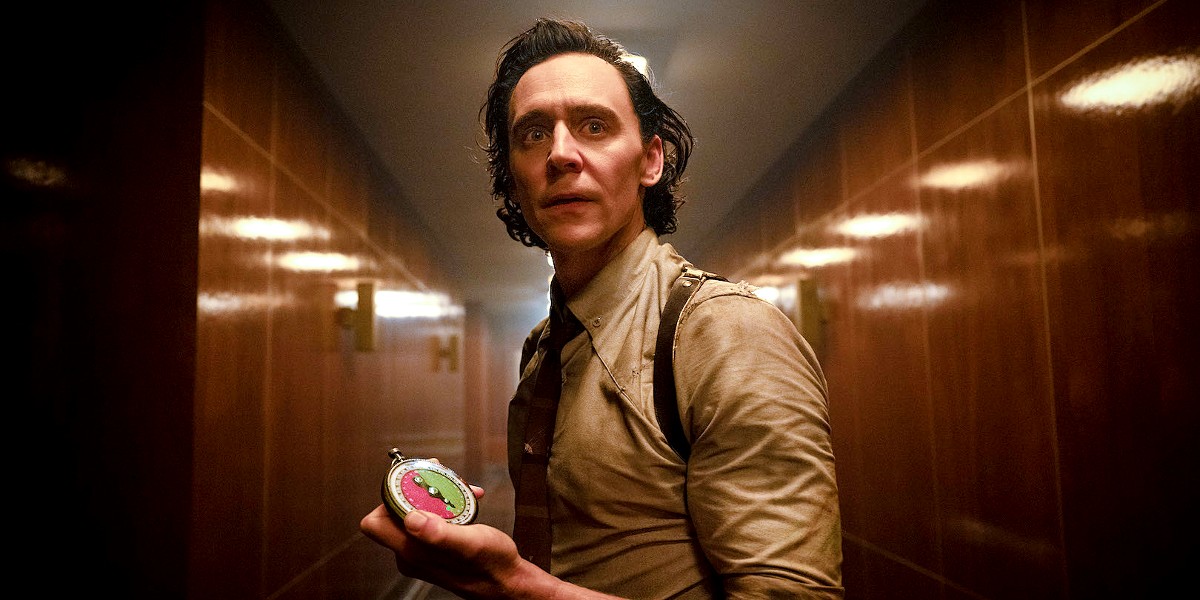Why Rewatching ‘Infinity War’ Makes Me Angry About ‘Loki’ Season 2

This weekend, I got to do something exciting with my husband: I showed him Avengers: Infinity War, which is one of my favorite movies, and one that he had never seen before.
He’s not a Marvel fan, so my efforts to get him into the Marvel Cinematic Universe have been hit or miss over the years. However, he was genuinely into Infinity War, and aftewards we geeked out about what makes it such a good film. Infinity War is a big story with lots of moving parts, but throughout the film, the plot and the stakes are crystal clear.
Clear stakes can be harder to pull off than you think, but Infinity War succeeds. What’s the goal in the movie? To stop Thanos from getting the Infinity Stones. What are the stakes? If he gets them, he’ll kill half of all life in the universe. Even when the story gets a little complicated, everything makes sense. Why do the Avengers take Vision to Wakanda? To remove the Mind Stone from his head, so Thanos can’t use it to kill half of all life. Why does Thor go to Nidavellir? To make a weapon to kill Thanos, before Thanos kills half of all life. For such an ambitious comic book movie, Infinity War is a remarkable achievement.
Then my husband and I started talking about Loki season 2.
To be clear—I’m a huge Loki fan. I practically gnawed on my furniture in the weeks leading up to season 2, I was so excited. But once episodes finally began to drop, I was left disappointed, and rewatching Infinity War helped me put my finger on why.
What are the stakes in Loki season 2?
The end of Loki season 1 promised huge stakes: with He Who Remains dead, an Infinite Bad Guy was on his way. Loki reiterates it in the excellent first episode of season 2. “That’s who’s coming back!” he cries, gesturing frantically at a sculpture of Kang’s face. This guy is coming to destroy all of space and time! This is a serious problem!
In episode 2, “Breaking Brad,” the plot begins grinding to a halt. The episode opens with Hunter X-5 having gone dark, Dox hatching some mysterious plan, Loki and Mobius on the hunt for Sylvie and Renslayer, and O.B. retrofitting the Temporal Loom. That’s a lot of plot to keep track of—and none of it feels especially important.
Let’s take the Temporal Loom, for instance. O.B. needs to retrofit it so that it can accomodate all the new branched timelines, which will prevent a meltdown. What happens in the event of a meltdown, though? Does the multiverse get destroyed, or just the Time Variance Authority? Is the TVA really the only thing keeping Kang at bay, especially since now no one knows how to run the place? Is weaving new branches into the loom any different than letting the multiverse run wild, if those branches still exist in the first place? If keeping the loom running will cause a meltdown, then what would happen if they just turned the loom off and let the multiverse do its thing?
Then there are the individual plot beats of the episode. Loki and Sylvie, for instance, have a charged conversation about free will, but nothing they say actually gives us useful information. “You’re just going to give people free will and then walk away?” Loki asks. “That’s how it works!” Sylvie replies. That’s how what works? What are they talking about? Why is she mad at him? Isn’t he going to warn her that the TVA’s still after her? Is it still after her, or did Dox get sidetracked by destroying branches? Why is any of this stuff happening when Infinite Bad Guy is on his way?
Sometimes, a story is simple enough to feel real. Other times, it can feel like a monkey riding a tiger’s tail, with the justification for each scene seeming like it was inserted retroactively. Loki season 2 began with stakes even higher than those in Infinity War—and it’s a shame that those stakes seem to be fading from view, even as the characters keep reminding us what they are.
(featured image: Disney+)
Have a tip we should know? tips@themarysue.com